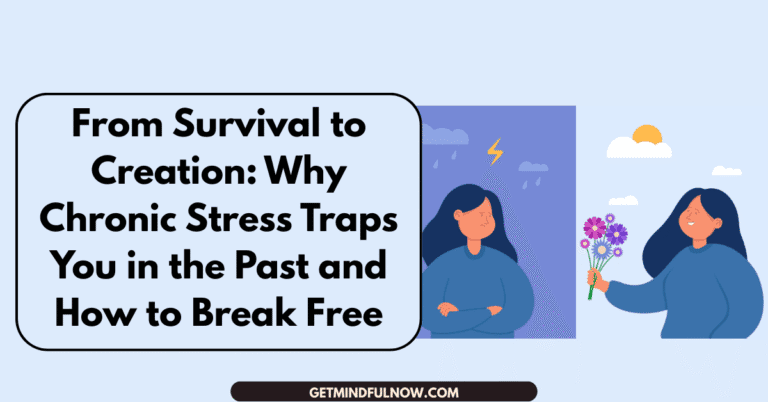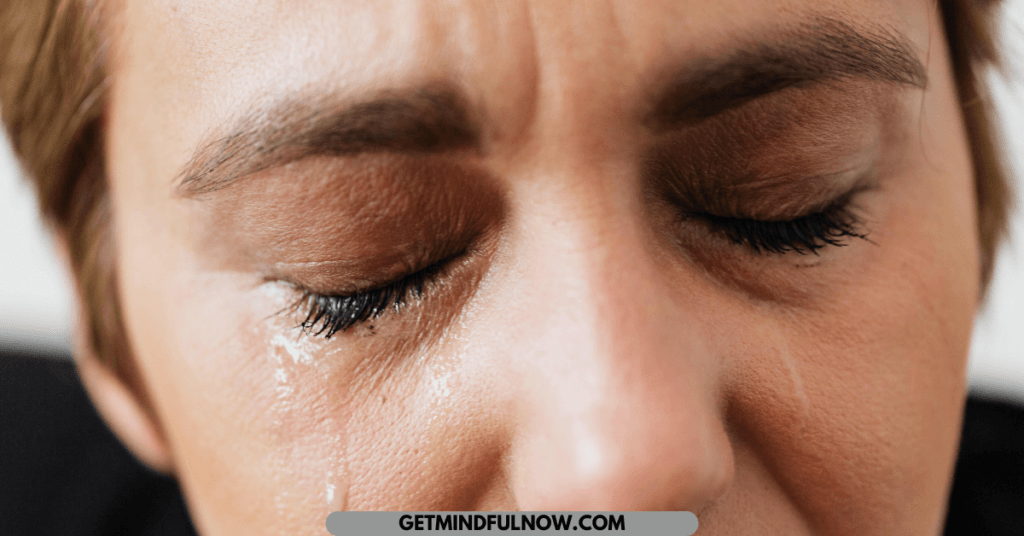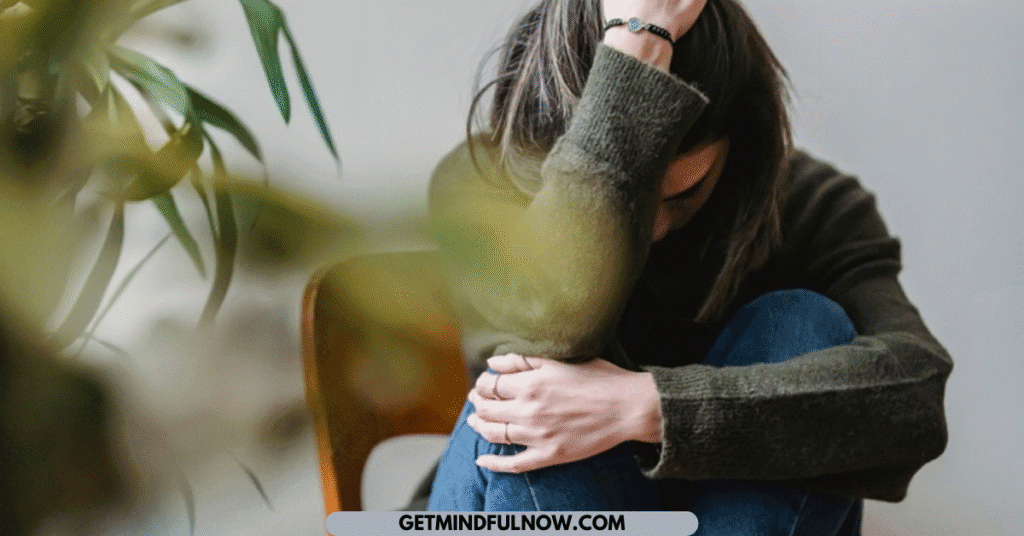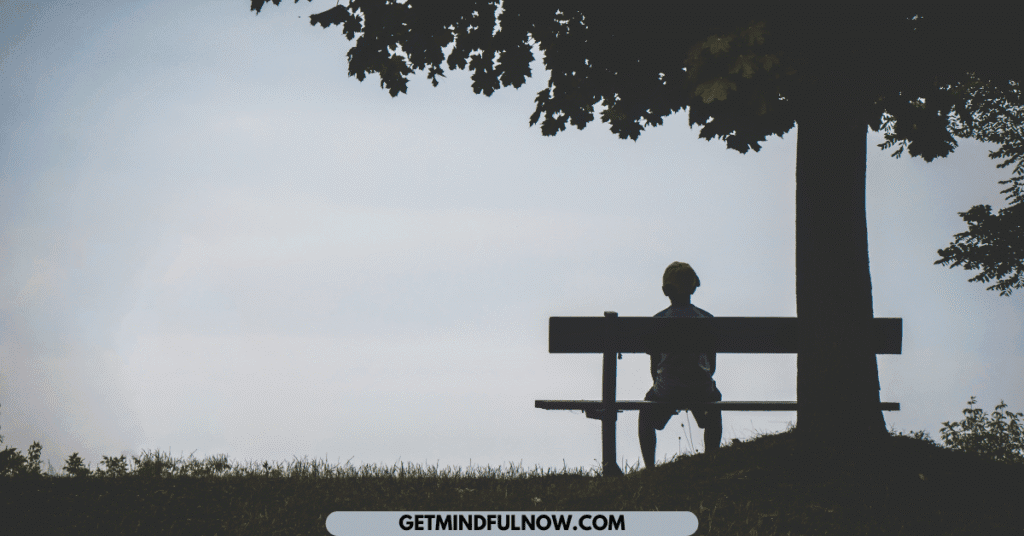I know survival mode better than I know my own reflection. For years it was my default setting. Wake up, hustle, grind, collapse, repeat. Always scanning for danger, always bracing for the next blow, never once asking what kind of future I was actually creating. Maybe you know that cycle too. The one where life is just about making it through the day instead of building the life you dream of. It feels like strength from the outside, but inside it’s a trap. but he truth is: your future self can’t grow when your brain is stuck in survival mode.
Why survival locks you in the past
Let’s talk science for a second. When you and I are in survival mode, our brains prioritize immediate danger. Adrenaline and cortisol flood the system, which makes sense if you’re running from a wild animal. In everyday life we face different stressors, a deadline, an angry boss, a fight with a partner, or an argument with a toxic parent.
The problem is it constantly puts us on edge, like the stress never fades away. If we get a moment when it isn’t there, we ruminate over what happened before, thinking about that meeting where your colleague made nasty remarks and how furious it made you. That constant replay keeps our alert system switched on.
Every organism in nature returns to homeostasis once the danger is gone. But our prime achievement that is feeling emotions from a past event with thought alone, has become our biggest enemy. When this happens, your prefrontal cortex, the part of your brain responsible for vision, planning, and creativity, gets shoved to the background. The brain says, “Forget the future, just survive the next five minutes.”
That’s why you can’t think big picture when you’re stressed. Your energy is chained to the past, rehearsing old memories and anticipating the same problems. You stop creating and start recycling. Dr. Joe Dispenza explains in one of his books that survival mode narrows your focus so tightly that you literally can’t access the brain circuits needed for imagining a new future. That’s not weakness, it’s biology doing its job a little too well.
What we lose in survival mode
Think about the last time you were really stressed. Did you feel creative? Probably not. Did you have the energy to set long-term goals or envision your dream self? Nope. In survival, the body doesn’t care about your future, it only cares about now. That’s why chronic stress shrinks the hippocampus (memory center) and hijacks the frontal lobe (decision-making).
Your brain isn’t trying to help you become an author, build a business, or heal trauma. It’s just trying to get you out alive. And in real life this shows up as forgetting simple things, staying stuck in toxic relationships because change feels unsafe, or developing health issues that seem to come out of nowhere. because when stress mode never stops, your body’s long-term healing and repairing are put on pause. Over time the constant pressure starts breaking down your core energy reserves. If the system never gets rest and repair to recover from those stressful events, eventually it shows up as disease.
And yet, from the outside, people might even admire your “resilience.” I used to get praised for pushing through, for being the hustler who could take on more than anyone else. But what they didn’t see was that I was running on fumes, stuck in the same loops, unable to dream bigger because my biology was too busy recycling the past.
I remember sitting and whining about how difficult my life was, how much I worked without support or a loving home, and then more sad and heartbroken I felt when my mom would say things like: “Oh, why can’t you be grateful that God has given you such immense power for all of this? Indeed, He has made it easy for you and you should feel gratitude for it.” She said that while all she did, even now, was sleep all day, eat, make others’ lives hell, and repeat. No wonder in her late 50s she’s still so healthy, despite eating junk and doing no exercise…
Stuck in old memories
Survival mode wires you to live from memory instead of vision. Your brain keeps replaying the same old experiences, emotions, and thought patterns. It feels familiar, even safe, but it’s the reason you keep attracting the same kind of jobs, relationships, or health problems. You’re not cursed. You’re just conditioned.
Research shows that stress hormones keep the body addicted to familiar emotions, anger, fear, worry, even if those emotions are destroying you. And when your body is addicted to those chemicals, it drags the brain down with it. That’s why it’s so hard to break free. You think you’re choosing, but most of the time you’re just repeating.
The hidden cost of surviving
I’ve lived this cost. Years of survival mode left me with multiple health issues that seemed to come out of nowhere. Depression dragged me to the edge more than once. My immune system collapsed so often I thought I was just weak, and my thyroid got so imbalanced in my early twenties that I even lost my voice. My hormones were all disrupted without any clear reason, just the body’s chemistry fried from years of stress. Research even shows that wounds of stressed patients took 40% longer to heal, which tells you how deep stress sabotages recovery at every level.
To me the worst part was feeling like a victim: like I did nothing “wrong,” worked hard, took the responsibility, carried the load, and still life beat me down. That’s the hidden cost of surviving, you give your energy to fighting the same battles and never build the future your soul is craving.
Why your future self needs creation, not protection
Your future self doesn’t grow from more hustle or better coping strategies. It grows when you shift your brain chemistry from survival into creation. That’s when the prefrontal cortex wakes up, when creativity flows, when you can imagine a future that isn’t just a slightly shinier version of your past. Survival says: stay small, stay safe. Creation says: let’s build something new.
Neuroscience proves this. Studies show that practices like meditation and visualization activate the same brain circuits as actual experience. Dr. Joe’s research teams have measured people in deep meditative states rehearsing their future selves, brain scans lit up as if they were already living those new identities. That’s neuroplasticity in action. The brain doesn’t know the difference between rehearsed experience and lived experience. Which means you and I can practice being our future selves until the body believes it’s real.
How to step out of survival and into creation
I’m not here to sell you fairy dust. This isn’t easy work. But it’s possible. Here’s how I started:
- Awareness – First I had to notice that I was living from survival mode. Constantly scanning, worrying, recycling old memories. Awareness hurts, but it’s the doorway.
- Intention – I set a clear intention of the kind of person I wanted to become. Not the hustler, not the victim, but the thriving self who creates.
- Learning – I studied what my ideal self would think, feel, and do. I looked at research, at mentors like Dr. Joe, at real-life examples of healed people.
- Mental rehearsal – Every morning and evening, I meditated and rehearsed myself living that new identity. At night, I checked in: how did I do today? Where did I fall short? And instead of beating myself up, I loved myself more and said, “Next time, I’ll do better.”
- Repetition – Over and over, day by day, until the new self felt more familiar than the old one.
And research backs this too. The Benson-Henry Institute for Mind Body Medicine at Massachusetts General Hospital in Boston looked at how meditation, known for eliciting peaceful and blissful states, changes gene expression. In 2008, 20 volunteers went through eight weeks of training in meditation, yoga, and repetitive prayer. They were compared with 19 long-term daily practitioners.
Results showed that novices expressed 1,561 genes differently, 874 upregulated for health and 687 downregulated for stress. Their blood pressure dropped and heart health improved. The experienced practitioners showed changes in 2,209 genes, most of them involved in improving the body’s response to chronic psychological stress.
Real proof that it works
If you think this is just motivational talk, let me drop some evidence. there’s another study where 117 subjects practiced gratitude three times a day for just four days. Their Immunoglobulin A (IgA), one of the strongest markers of immune function, shot up by 50%. That’s not just feeling good, that’s biology changing.
Stress had been suppressing their immune systems. Gratitude flipped the switch back on. I’ve lived this myself: after years of constant infections, I haven’t caught a cold or flu in almost two years, even when the people around me did.
And more research shows that positive emotions generated from the heart, like gratitude, compassion, and love, boost the production of DHEA, a hormone tied to vitality, and activate longevity enzymes that slow cellular aging. That means the way you feel in your heart can literally decide how long and how well you live.
Other studies show meditation increases blood flow to the frontal lobes, strengthens the prefrontal cortex, and increases gray matter density in regions linked to learning and emotional regulation. Translation: the very brain areas that survival mode shuts down can be reactivated and rebuilt through intentional practice.
Choosing creation daily
Even now, I live this every day. I meditate in the morning to set my intention, and at night I pause to reflect. I journal the places I fell short, not to shame myself, but to build awareness and love myself into doing better tomorrow. During the day I check in with my emotional state, and even if stress creeps in, because that’s inevitable, I don’t let myself ruminate once the moment has passed. I’ve trained myself to let it go.
I also keep reading and studying materials and books that I share in these blogs, so the knowledge keeps me anchored. Because I know what I want: to live healthy, young, and excited without weekly or monthly doctor visits. I’ve been there, and it was the worst, always sick and still never better. Back then people told me I looked older than my age; now it’s the opposite. No one believes I’m 27, they say I look 20. Science supports this too.
In 1981, Harvard psychologist Ellen Langer ran a study where eight men in their 70s and 80s spent five days at a monastery in Peterborough, NH, pretending it was 1954 again. Afterward, their bodies tested physiologically younger, their posture, flexibility, eyesight, hearing, memory, even their grip strength improved.
That’s proof that mindset and environment can literally turn back the clock. This daily rhythm rewires my nervous system a little more each day, shifting me from a life of repeating the past into a life of creating the future.
Final thoughts
If you’ve been living in survival mode, I want you to hear this: you are not broken, you’re conditioned. You’ve been rehearsing the past for so long that your body forgot how to create the future. But your future self is waiting. And it doesn’t need more hustle, it needs you to step out of survival and into creation. It needs you to rehearse peace, joy, courage, and vision until those states feel like home.
That’s what I’ve chosen, and it’s what you can choose too. Survival mode will keep you small. Creation mode will make you free.
If this spoke to you, and you’re ready to stop recycling your past and start building your future self, I’d love to guide you personally. You can book a one-on-one session with me through my homepage. And if you want more raw, science-backed conversations like this, subscribe to my newsletter and follow me on Threads. Let’s build our future selves together.








